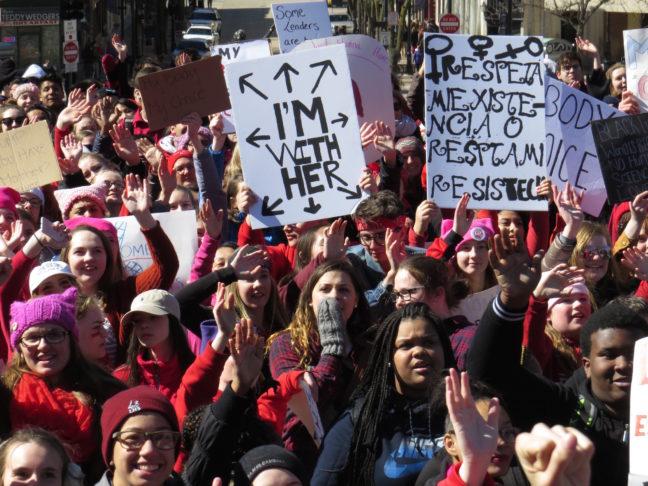“Equal pay for equal work;” a slogan that has resounded for more than a century, but only now realized in one country.
On March 8, 2017, Iceland passed a bill mandating companies to offer equal pay for equal work. The full implementation of this bill is expected in 2020. Iceland already had the smallest gender pay gap internationally, with women earning 86 to 88 percent of a man’s wage. It may seem slim, but to put this in perspective, this wage disparity means in a typical 9 a.m. to 5 p.m. shift, female employees work unpaid after 2:38 p.m. In October, women in Iceland protested the gap by triumphantly leaving work at this time.
Last week in the U.S., female teachers across the country went on strike on “A Day Without Women,” leading at least three school districts across the country to cancel classes. Protests in the Bay Area caused uproar in the affected neighborhoods — parents argued the protest was “infuriating and uncalled for,” because they had to scramble for child care in the last minute or have one parent stay home for the day.
These two countries show drastically different attitudes toward the feminist movement. It is a shame women have been fighting for equality for more than 100 years, and still we have not seen substantial changes in our country.
The Enlightenment Era of the 18th century marks the early stages of the feminist movement. In the 19th century, notable feminists activists such as Elizabeth Cady Stanton and Susan B. Anthony started a wave of feminism across the U.S. by successfully attaining suffrage rights for women. It is truly inspiring to see how women and their allies fought for everything they desired, and demanded nothing is taken for granted.
Historically, the particular issue of equal pay began in 1923 as part of the Equal Rights Amendment written by Alice Paul and Crystal Eastman. Despite support in Wisconsin, the amendment was never ratified federally. There was a split among feminists — while middle-class women fought for full equality, working-class women did not want to lose certain privileges, such as not working late-night shifts or lifting heavy loads.
This sounds awfully similar to the situation we have today. Some argue the “Day Without Women” protest is elitist and only serve those who enjoy certain privileges. Indeed, women have sacrificed their domesticity by campaigning for their rights and equality in the public. Part of the reason why we still have not accomplished anything substantial is because we cannot unite under this one ideal.
One woman can work at her job without worrying about day care when another woman is earning minimum wage to look after her child. This may be the unfair privilege we really need to address. School teachers in public school systems are among the most underprivileged groups. It is important to take a stand so the public realizes the indispensable role they play in the society.
Complete gender equality is a dream deferred for more than a century, and it should remain an ideal that unites all people who care for the cohesion of our society.
Grace Li (jli683@wisc.edu) is a freshman majoring in biomedical engineering.


